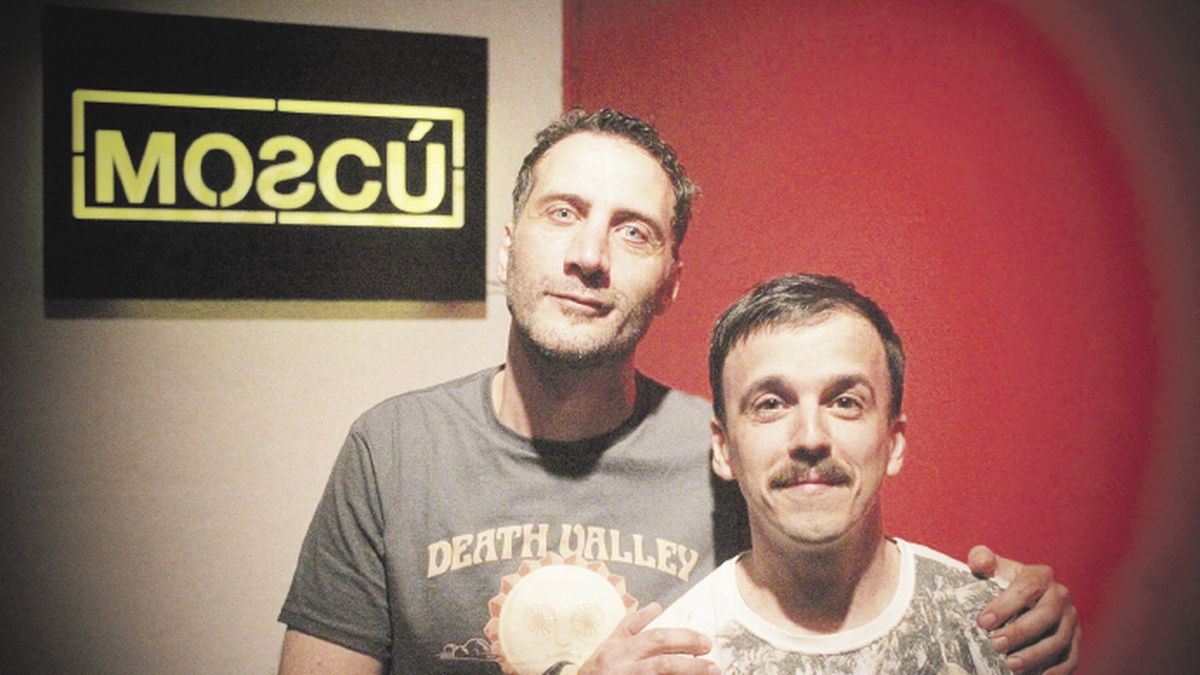“As Sarah Kane said in ‘4.48 Psycho’, a lucid moment before the endless night. As if one’s entire life passed by in a fleeting something. “My character wants to be loved, accepted and have a place”says Luciano Caceres about “Bite”, sole proprietorship written and directed by Francisco Lumerman, which premiered last Friday in Moscow Theater.
“Muerde” is a solo, almost police thriller, in which Rene will try to find out where his wounds come from while Pink, and his past haunt him in everything he kept silent about. The work won the 2nd prize for unpublished works from the National Fund for the Arts 2015. It has lighting from Ricardo Sica and sound design Agustín Lumerman. It is performed on Fridays and Saturdays at 7 p.m. We talk with the actor and the director.
Journalist: What is this character like and what are his fears? Why doesn’t he remember anything he did?
Luciano Caceres: René is afraid of the night, like any child. At the age of 10 he was abandoned in this carpentry workshop that makes coffins. He has no notion of time but he remembers everything in great detail, that’s what the work is about, the details that disorderly fit into his mind.
Francisco Lumerman: René lives on the outskirts of a small town and has always lived alone. He is a character who goes through heartbreak and finds in some relationships the possibility of displaying his tenderness towards others. He falls outside of any place that society expects people to have and that makes him charming and useful to others. René does not have a critical or spiteful view of others, but rather it is a functioning that leads him to be certain ways, he is afraid of being alone and the eruptions of violence that he has come, and he does not know how to explain them. He did things that he cannot remember and tries to reconstruct that past to try to understand.
Q: What themes does the work address?
LC: The relationship of a son with his absent father and mother, his first love, his sexual debut, naturalized violence, heartbreak, abuse, being different and the brutality that it generates in the environment, which at times is compared to dogs but that overcomes all possible violence. He talks about the abuse suffered by a man, something peculiar in these times.
FL: Love always appears, but there is the question of where violence begins, how it is activated, how some violence is legitimized and others are not. Stigmatization and seeing a little further.
Q: How do you give dynamism to a one-person company?
LC: The dynamism is placed in the word, in that coming and going of thoughts, situations, voices that crossed your life, and the action and dynamism is also emotional, you do not necessarily have to have many physical movements for everything to move inside and burst into the viewer.
FL: There is something about acting that is always fundamental but more so in a one-man show. You have to be in favor of what is being told, and have all the elements of the presentation work dynamically to support that story. First there was the acting composition, then the music composed especially by Agustín Lumerman to provide support and generate atmospheres, as well as the lights by Ricardo Sica. I don’t know if it has to have a particular dynamism but rather focus as always on the actor’s body, which is an artisanal work. Luciano plays very well with the elements proposed in the text and gives different nuances.
Q: What is the difference between this work and the version that was made for streaming during a pandemic?
FL: Totally different, at the time it was the theater that we could have and it was valued but this is returning to the format for which the text was written, it was returning to the territory. I put on this play in Lima with another actor and this is a third revision of the text, I decided not to take anything from what I had done before and to give myself in the rehearsals with Luciano to where he was taking us, to discover how it resonates now in this theater, with this actor and this context.
Q: How do you see the theater scene at the moment?
LC: The performing arts continue to be our place of reference and resistance, where we can talk about our stories, identity and more in independent theater, where what mobilizes the most is the pleasure and desire to carry it out without a price to calculate. We are at a critical moment at the political level where one of the proposals is being debated to cancel everything that has to do with culture, art and to obtain all types of support. There are always interesting movements and creatives with new points of view on the same old topics.
FL: The theater is very vital and the return to theaters is overwhelming despite the economic crisis. We defend these meeting places with many premieres at the end of the year, although the crisis in terms of production lies in how to bring materials to the stage and how to sustain independent theaters, it is always something to continue thinking about. Looking ahead to the runoff with great concern about this way of seeing the world in which for me the State has to be present, even more than today. A country without supporting the Film or Theater Institute cannot count on itself, it is a country without identity.
Source: Ambito
I am an author and journalist who has worked in the entertainment industry for over a decade. I currently work as a news editor at a major news website, and my focus is on covering the latest trends in entertainment. I also write occasional pieces for other outlets, and have authored two books about the entertainment industry.




